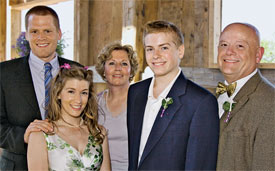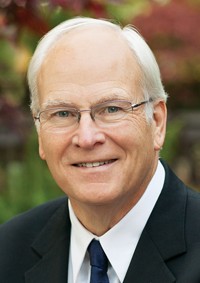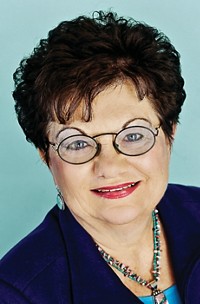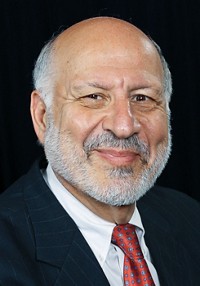Advertisement
Grab your lab coat. Let's get started
Welcome!
Welcome!
Create an account below to get 6 C&EN articles per month, receive newsletters and more - all free.
It seems this is your first time logging in online. Please enter the following information to continue.
As an ACS member you automatically get access to this site. All we need is few more details to create your reading experience.
Not you? Sign in with a different account.
Not you? Sign in with a different account.
ERROR 1
ERROR 1
ERROR 2
ERROR 2
ERROR 2
ERROR 2
ERROR 2
Password and Confirm password must match.
If you have an ACS member number, please enter it here so we can link this account to your membership. (optional)
ERROR 2
ACS values your privacy. By submitting your information, you are gaining access to C&EN and subscribing to our weekly newsletter. We use the information you provide to make your reading experience better, and we will never sell your data to third party members.
Policy
We're All In This Together
Each of us has a personal stake in the advancement of chemistry and letting others know the value of our science
by Thomas H. Lane, ACS President
January 5, 2009
| A version of this story appeared in
Volume 87, Issue 1
"You cannot hope to build a better world without improving the individuals." —Marie Curie (1867–1934)
IN THAT simple statement, Madame Curie summarized a prime responsibility for the American Chemical Society: to reach out and make sure that those who follow us have the opportunities that we were afforded, to actively learn our discipline, and to leverage the power of chemistry to improve peoples' lives.
I am deeply honored to serve as ACS president during 2009 and hope that you will join me to help create exciting opportunities for future generations of chemists and chemical engineers.
AREAS OF FOCUS. It is interesting to note that ACS presidents in recent years have expressed similar areas of focus for their time in office. Communication and education are nearly always among the objectives. Likewise, I have included those areas as primary targets for society action. I firmly believe we also must articulate our desired outcomes for these and any other initiatives we undertake and set appropriate metrics to measure our effectiveness.
My campaign platform included three specific pledges:
Education. Keep education and science literacy at the forefront of our thinking and pivotal in our actions.
Relationships. Keep an open mind, hear all voices, and practice tolerance and acceptance as ACS continues to reach out. Build new and productive relationships that support our strategic plan.
Outcomes. Help develop outcome-based metrics to guide ACS.
Of course, we all will need to work together to develop these pledges into measurable achievements. Together, we can make a difference. Perhaps it will be infusing a child with enough curiosity about chemistry that she will start asking her parents and teachers what chemists do. Maybe it will be inspiring other chemists to reach out to civic leaders about the importance of chemistry in their community.
Diversity of thought is incredibly important in a collaborative situation, whether it be a research team working together to solve a tough problem or a group of motivated ACS member volunteers coming up with exciting new ideas for telling others about the transforming power of chemistry. Let's listen to one another, work together, and experiment.
At some point, most of us probably have attended a training session where the take-away message was unclear. Perhaps the facilitator thought the presentation was so well-focused that everyone would come to the same conclusion and walk away with unity of thought and purpose. Personally, I prefer unmistakable clarity. So, let me tell you my take-away message right at the outset and then repeat it at the end:
We, as a society, are all in this together!
If we don't band together to further our interests, who will? We cannot rely on others to watch over our discipline.

Plainly put, we are the stewards of chemistry, past, present, and future.
EDUCATION—A PASSION. People who know me know that education is my passion. To me, it means believing in kids and being respectful. It also means believing that teachers are part of the solution to our problems. We need to listen to what educators have to tell us.
Many argue that education in the U.S. has not kept pace with our changing society. Vast sums of money and volunteer hours have been put forth to try to correct the problem. Unfortunately, despite this effort, our country's students continue to fall behind those in many other developed countries. And the situation does not show signs of improving.

"The core problem is that our education and training systems were built for another era." That statement from the December 2006 report "Tough Choices or Tough Times," prepared by the New Commission on the Skills of the American Workforce, as part of the National Center on Education & the Economy, suggests that our education system is in need of serious overhaul. Simply patching it will not be enough to make our students—tomorrow's workforce—truly competitive in the global marketplace.
The report cites several reasons for the steady decline in U.S. education standings on the world stage. One that stood out for me is the statement: "We have failed to motivate most of our students to take tough courses and work hard."
Many students, when given the choice, will go after the low-hanging fruit. We need to help them understand that reaching higher can change their lives. As I wrote in a statement in the ACS Journal of Chemical Education (2007, 84, 1598), our children cannot be expected to compete in our global society on just burgers and fries. We must find new ways to serve up our discipline in ways that encourage our children and our communities to experiment, to try just one bite. Who knows, some might even go back for seconds!
Businesses, professional societies, government bodies, and academia all want to help—each with their own reasons, styles, and approaches—to address a perceived element of the problem. My employer, Dow Corning, has been supporting education for decades. On one level, it's because the company's success depends on having a well-rounded and competent scientific and technology workforce. On another level, as a corporate citizen, it's simply the right thing to do.
Likewise, ACS has long been a world leader in promoting education. As professional scientists, engineers, and educators, ACS members personally understand the importance of having a solid foundation in science-, technology-, engineering-, and mathematics-based subjects.
The ACS Education Division has numerous programs for students and teachers, ranging from kindergarten through graduate school. Details on all of these programs may be found at www.acs.org/education. Of course, the value of these programs depends on how well they actually meet the needs of students and teachers. That's why it's critically important that we work closely with teachers to develop the best possible tools that will engage and educate students about chemistry.
Teachers are on the front line of education day in and day out. They are they ones who best understand what works in the classroom environment.
I urge all chemistry teachers to consider ACS as their professional home—the place they can always count on for support and where they are always welcome to share their ideas and expertise.
We need teachers, especially high school chemistry teachers, to join with us to identify what does and doesn't work in the classroom and suggest new ways to more fully engage high school chemistry students with the society.
If you're a teacher, I hope you will consider partnering with ACS on this important effort. Share your thoughts with us by contacting the Education Division at education@acs.org.
One of the Education Division's very popular programs is ACS ChemClub—chemistry clubs for high school students. There are more than 120 ACS-sponsored high school chemistry clubs throughout the U.S. Students in these clubs get involved in community activities and have access to plenty of ACS materials and support.
ACS ChemClub interacts with student affiliates chapters and ACS local sections, providing a continuum of opportunities from high school through practicing chemists. Visit www.acs.org/education and click on the "High School" link under "Educational Resources."
Lane Speaks On Workforce Skills
ACS President Thomas H. Lane will be the featured speaker on Jan. 8 at the monthly ACS Careers Industry Forum teleconference. The forum will focus on skills that people working in the chemical sciences need to develop for today's and tomorrow's workforce.
"Being competent in your area of expertise is no longer enough to be successful; it is simply the price of admission," Lane says. "You also need to be able to communicate and collaborate on many levels, be creative and committed, and have the courage of your convictions."
Visit the ACS Careers Industry Forum (acscareers.wordpress.com/industry-forum) for more information and to sign up to participate in the discussion "Mastering the Necessary Skills for the Present and for the Future."
In October, I sent a letter to the chairs-elect of local sections encouraging them to explore ways to interact with the high school chemistry clubs in their areas. Opportunities include inviting clubs to participate in National Chemistry Week and Earth Day or attend a Science Café or local section meeting. Your section could even apply for an Innovative Project Grant to help sponsor an activity for a club. I hope you will encourage your section to get involved with the ACS ChemClub program.
Certainly, we should not wait until high school to begin engaging youngsters in chemistry. I truly believe that being proactive with students, their parents, and teachers in the early grades is a great way to begin to improve our education system. Being responsive and collaborative can help create positive attitudes about chemistry and influence youngsters to begin asking questions about what chemists do. That, in turn, opens the door for us to let them know that we help people, that we create things that improve lives, that they too can help people by studying math and science.
Once we have this window of opportunity, I believe it's imperative that we let kids know that if they are willing to study and work hard, they can be anything they want to be. They can be the ones who make a difference in stopping global warming, finding new sources of energy, and solving the crisis of food and water shortage. It's imperative that we help young people understand that anything is possible.
I would challenge all ACS members to get involved in helping a child realize his or her potential. Most of us can remember someone in our lives who helped guide us toward chemistry, someone who took the time to explain, mentor, and motivate. It's time now for us to "pay it forward."
RELATIONSHIPS—A CALL TO ARMS. We also know that it is vitally important that we have a citizenry that supports scientific inquiry and progress. That's why I issued "A Call to Arms" to all local sections to go out into their communities and create new relationships to help put a public face—a human face, if you will—on chemistry. One of the things I hope will happen from this call to arms is that our membership will reach out to organizations that we don't normally interact with and begin a dialogue about what each of us does.
Perhaps it might be initiating a discussion with the local fire department to find out what fire fighters and chemists have in common. Certainly, both work closely with chemicals and must understand chemical reactions. Just as important though, both help people!
From this common starting point, hopefully we could identify areas of overlap where we might be able to work together on a public outreach project that would benefit both chemists and fire fighters.
In collaboration with the Local Section Activities Committee, we have made funds available to support this call to arms, which we have named the Local Section Partnership Project. Grants of up to $500 are available to sections to help defray expenses related to the projects. I hope section members will join in this new initiative and take advantage of the opportunity to reach out and partner with groups in their communities.
The list of potential partners is nearly limitless. Big Brothers Big Sisters, Boys & Girls Clubs, Boy Scouts and Girl Scouts, Rotary Clubs, YMCA and YWCA, and the American Red Cross are just a few that come to mind. I urge you to take advantage of this outreach effort. It's an excellent way to team up with respected service organizations in your area and share with them how chemists help people.
One of the things I think would be great as an outcome of this attempt at partnering is as simple as hearing a child say, "Chemistry is cool." Those three words could change landscapes for us. It could give us the opportunity to talk with youngsters and tell them all the things that are possible with chemistry.
Perhaps we could even identify some celebrities and athletes who studied chemistry or chemical engineering in college who might be willing to help us tell kids about the importance of studying math and science. The reality is that many youngsters see celebrities and athletes as role models. If we can find appropriate partners to join us, I think we could leverage their influence with youngsters and gain some traction and credibility with kids.
You can find out more about the Local Section Partnership Project by going to the ACS Web site (www.acs.org). Click on "Funding & Awards," then click on "ACS Community Recognition Grants" under the "Grants" section, and then click on "Local Section Partnership Project Mini-Grants."
I want to thank the members of the Local Section Activities Committee and its chair, Wayne E. Jones Jr., for ongoing support and guidance on this exciting new outreach undertaking.
The Lane Clan

All In The Family
Thomas H. Lane was born in Chicago and grew up in the rural community of Brook, Ind., the fifth of seven children. He was the first in his family to go to college. He has an undergraduate degree in chemistry from Purdue University, a master's in physical-organic chemistry from Central Michigan University, and a Ph.D. in physical-organosilicon chemistry from the Open University, in England. He also participated in the Industrial Research Management Program at Harvard Business School.
Lane is an avid photographer and specializes in medium- and large-format silver-based photography—both lens and lensless—with negative sizes up to 8 × 10 inches. He develops and prints all of his images in a professional-grade darkroom at his home. Among his photography interests are portraits, still life, fine art, landscapes, and abstracts.
His wife, Janis, an executive with IBM, has an undergraduate degree from Colby College, in Maine, and earned an M.B.A. from the University of Rochester. They have three children: Julia, Peter, and Sam.
Julia holds a master's degree in education from Acadia University, in Nova Scotia, and an undergraduate degree in biology from Queen's University, in Ontario. She and her husband, Andrew, live on Canada's Baffin Island, part of the Arctic Archipelago.
Peter is currently pursuing a Ph.D. in economics at Duke University and holds an undergrad degree in physics from the University of Michigan.
Sam is a junior in high school with interests in journalism and art. He is an accomplished pianist and a second-chair cellist in his school's honors orchestra.
Being connected with your community is central to spreading the word about the contributions of chemists and chemistry to the lives of all citizens. In a nutshell: It's our science, and it's our collective responsibility to nurture and promote its centrality.
METRICS—NOT ALWAYS EASY. I talk a lot about metrics, especially measuring outcomes. I also believe we need to measure perceptions. Perception is an incredibly difficult concept to measure. For one, it's very generational.
There is an interesting ongoing international collaboration that explores the relevance of science education from the perspective of 15-year-old students. Called the Relevance of Science Education Project (ROSE), the study reports on the responses of approximately 1,000 students in each of 32 countries to a 250-question survey. U.S. students are not part of the study.
ROSE has a number of intriguing findings. For example, the majority of students in developing countries say that science and technology could help cure diseases and make everyday life healthier, easier, and more comfortable. At the same time, many of the students in industrialized countries disagreed that school science had opened their eyes to new and exciting jobs or increased their appreciation of nature.
Talk about a paradox!
Granted, the study involves kids in other countries, but I think we might find much the same here in the U.S. among our own students if we were to do a similar study.
I'll be the first to acknowledge that measuring perceptions is not only difficult, it's also expensive. But I would argue that not to measure is even more expensive. Trying to develop a plan of action to change perceptions without first verifying that the perceptions indeed exist on a wide enough scale to warrant action, and without understanding what factors were at play that influenced the perceptions, is foolhardy. As a scientist, if I did an experiment but didn't measure the dependent variable because it was hard, I'd be bounced out into the street pretty fast. "It's hard" is not a good answer.
It would be time and effort well spent if ACS actively supported and became involved in a national initiative to determine the current attitudes of U.S. students toward science, particularly chemistry and chemical engineering. Once we identify what the youth of our country think about science, then I think ACS should be a leader in developing programs to positively influence those attitudes and articulating appropriate metrics to measure the outcome of our efforts.
Advertisement
GET INVOLVED. Sometimes it just takes one person to make a difference in how others view us.
Let me suggest that the next time you are talking with a nonchemist, ask if they know what chemists do. Be ready to help them with a few examples. You might explain the critical role that chemists play in the development of new drugs. Maybe you could talk about how forensic chemists help solve crimes. If you happen to be chatting over a beer, you could even explain how chemists and chemistry are essential to the brewing process.
You also might try asking a chemist: "What do chemists do?"
On more than one occasion, I have been surprised at the amount of difficulty some chemists have in explaining exactly what we, as a profession, do. We should know how our actions improve peoples' lives. I simply tell people that I am proud to be a chemist because I help people! I help create the materials that improve our lives each and every day.
Ask yourself: Why are you proud to be a chemist? How do you help people with your science?
Tie your explanations to the ACS vision statement: "Improving peoples' lives through the transforming power of chemistry." I cannot think of a single chemistry endeavor that does not support that statement.
Here's the bottom line: If you want people to have a favorable opinion of what we do for a living and perhaps motivate a child to study science, you need to get involved. Together, we need to develop simple messaging that teaches what chemists do and how chemistry improves lives. We create the building materials, medicines, electronics, and health care and personal care products that not only improve lives but also save lives.
We share the responsibility to make a positive difference in how chemists and chemistry are perceived by others. Whether it's simply taking a moment to answer a child's question or investing time to talk with policymakers through the national ACS Legislative Action Network (act4chemistry.org), your expertise and enthusiasm are needed.
I'm asking for your help. As scientists, engineers, educators, and members of ACS, each of us has a personal stake in the advancement of chemistry and letting others know the value of our science.
We, as a society, are all in this together!







Join the conversation
Contact the reporter
Submit a Letter to the Editor for publication
Engage with us on Twitter